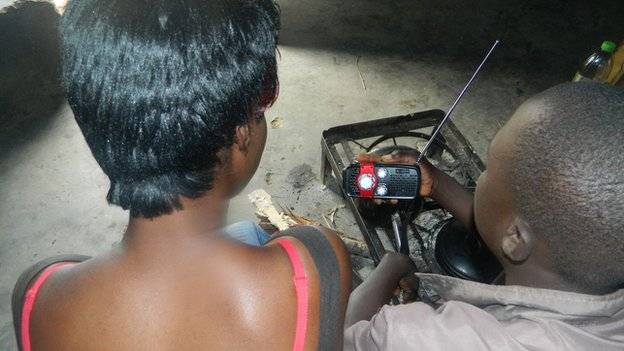Said1
Gold Member
U.N. Report on Zimbabwe Slams Slum Destruction
By WARREN HOGE
Published: July 22, 2005
UNITED NATIONS, July 22 - The United Nations today condemned the mass destruction of urban slums and shantytowns in Zimbabwe by the government of Robert G. Mugabe as a "disastrous venture," saying it had left 700,000 people homeless and created a "humanitarian crisis of immense proportions."
In a tough-worded report, the United Nations demanded that the activity be stopped immediately, that compensation and assistance be arranged for victims and that the leaders of the campaign be prosecuted.
The report also suggested that the operation could amount to a case of crime against humanity.
In an accompanying statement that called the report "profoundly distressing," Secretary General Kofi Annan said, "I call on the government to stop these forced evictions and demolitions immediately, and to ensure that those who orchestrated this ill-advised policy are held fully accountable for their actions." (Ewww, feel his wrath. :blah2: )
Mr. Annan said the United Nations would "urgently" seek agreement with the government in Harare to mobilize assistance "on the scale that is required to avert further suffering." He urged the government to recognize the state of emergency and give free access to international aid workers.
The government campaign, which began without warning on May 19, has resulted in the bulldozing of shacks, workshops and market stalls across Zimbabwe's urban centers, with the evicted robbed of their livelihoods and forced to withstand winter weather in tents and makeshift shelters and transit camps.
Mr. Mugabe has defended the undertaking, called "Operation Restore Order," as an urban renewal plan designed to bring stability to Zimbabwe by cracking down on illicit activities and illegal structures. The report said that the program was referred to derisively by locals as "Operation Tsunami."
The 100-page report, compiled after a two-week fact-finding trip by Anna Kajumulo Tibaijuka, a Tanzanian expert in rural economics, said that removals were "carried out in an indiscriminate and unjustified manner, with indifference to human suffering" and left Zimbabwe in "a virtual state of emergency" from which it would take years to emerge.
While the report said that the government of Zimbabwe was "collectively responsible" for what has occurred, it laid direct blame on an unnamed "few architects" of the policy and said the people of Zimbabwe should hold them accountable.
At a press conference, Mrs. Tibaijuka turned aside repeated questions over whether Mr. Mugabe himself wasn't one of the plan's architects. "I was not sent on an exercise to apportion blame," she said. She also declined to say whether Mr. Mugabe had expressed any remorse over the victims in either of the two meetings she had with him. (remorse?? Talk about your stupid questions.)
Speaking less diplomatically in her report, she said, "It remains the strong recommendation of the envoy that the culprits who have caused this man-made disaster be brought to book." (hmmmm, how about Mugabe?)
In an apparent rebuke to Mr. Mugabe's claim to be acting to rid Zimbabwe of the vestiges of colonialism, Ms. Tibaijuka said that the government had pursued "a disastrous venture based on a set of colonial-era laws and policies that were used as a tool of segregation and social exclusion." Man, now I've heard EVERYTHING!
The blunt report comes at a time when African leaders have resisted criticizing Mr. Mugabe despite evidence of the widespread devastation his policies have provoked.
Tanzania, Namibia and Zambia are among those that have praised Mr. Mugabe's economic policies in recent months or stopped protesters from faulting them. The African Union, the organization created five years ago to promote continent-wide economic, political and human rights standards, responded to a recent demand from the Group of 8 industrial nations by calling Zimbabwe's crisis an internal matter.
Thabo Mbeki, president of Zimbabwe's powerful neighbor, South Africa, has long argued that "quiet diplomacy" is needed to help Zimbabwe, and he has remained silent on the mass evictions.
In the report, the United Nations called on Harare to halt immediately all demolitions, arrange compensation to those who had been made homeless and put into place humanitarian aid measures with particular emphasis on helping women and children, who, Mrs. Tibaijuka said, were the worst affected. The report recorded 40,800 affected families as headed by women.
Mrs. Tibaijuka, who heads the United Nations' human settlements program, known as Habitat, said that 92,460 housing structures and 32,538 small and micro business places had been bulldozed.
Link
